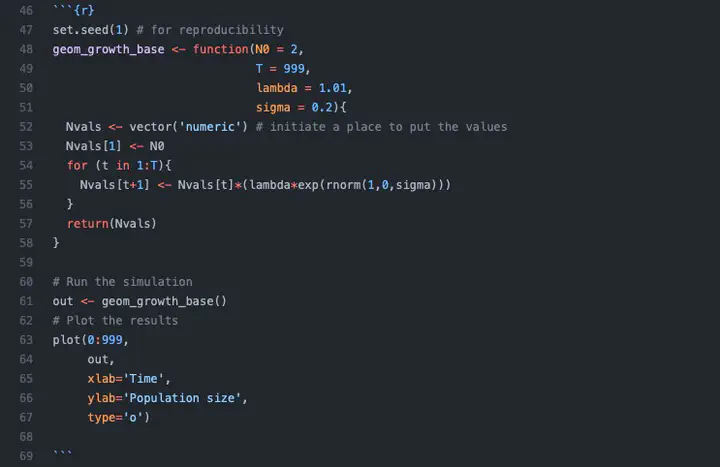Analytical Workflows (IB516)

Have you proposed a modeling chapter for your dissertation but need support getting things up and running? Will you soon be sitting on a complete data set ready for your planned analyses but don’t know how or where to begin? Maybe you’re far along in a series of analyses and feel “lost in the trees.”
This course will help you with these challenges by practicing the development and implementation of efficient, reproducible workflows for your projects. Every project should (and can) be modular and fully automated, hence reproducible, portable and easily modified. Rerunning an analysis with a different set of parameters should (and can) be as simple as a few keystrokes. Regenerating all figures and tables for your manuscript after finding a typo in your code or dataset should (and can) be painless.
Efficient workflows start at project conception and end only if the project idea is itself a dead end. Thus, in this course, we’ll work to practice (1) refining and articulating project goals and benchmarks, (2) creating modular and automated analyses, and (3) using best practices in coding and project management. We’ll learn how to use Git, GitHub, LaTeX, Markdown, and high performance clusters (HPCs). The instructors will mostly use R within RStudio, but users of other programming languages and text editors are welcome and encouraged. You will need either (1) a dataset and a visualization or analysis goal, or (2) a model or simulation (or sufficiently well-developed ideas for one). The use of other people’s data or published models is also encouraged, as needed.
All teaching materials for this course are available on GitHub.